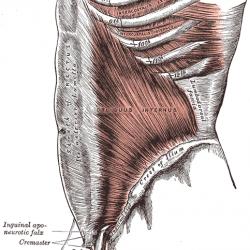Hospital Financial Assistance Programs Can Help To Reduce And Even Eliminate Medical Bills
According to studies, one in four adults struggle with medical debt even if they have a medical insurance. Most people end up paying from out of pocket for a major part of their medical bills and thereby use up the entire or most of their savings. The report says that around 63% of the insured are left with no savings and about 7% end up filing for bankruptcy due to this savings drain.
In fact, one of the most important aspects of the Affordable Care Act, ACA is to drop the number of such personal bankruptcies due to unpaid medical bills in the United States. Consumer Reports suggests that ACA has been able to reduce personal bankruptcy filings by more than 50% after its implementation.
Dealing with your medical bills
You may be surprised to know that there are easy and effective ways in which you can reduce and even eliminate your hospital bills and avoid falling into medical debts.
- While dealing with your costly medical bills even with insurance you must ensure that the insurance company receives the bill though most hospitals and medical practices will bill them as a courtesy. It is your responsibility to call up your insurer to make sure that they have everything required in hand to process the payment.
- If you find that the bill is shockingly high make sure that you do some legwork to find out medical billing errors if any that may be inaccurately reflecting in the amount that you owe.
Also examine the Explanation of Benefits of the insurer when it is send to you for anything that looks unfamiliar. If so, reach out to the insurance company and the medical facility to ensure rectification and accuracy.
Look for hospital financial assistance
Now that you know that the medical bill is perfect in all respects you must know about the ways to reduce your medical bills and in turn your debt.
Start with looking for hospital financial assistance. Surprised? Well, most people do not know that many hospitals especially the nonprofits offer several different financial assistance programs. These are especially designed to help patients to pay for specific medical care that they cannot afford normally.
There are two specific situations in which you are likely to qualify for such assistance programs.
- The first situation is when you owe a considerable amount even after your insurance policy has covered a part of the cost. If your income is low but you are still responsible for this payment, you will qualify for hospital assistance programs.
- The second situation is when you are not insured. In such a condition, you can get an automatic reduction in your medical bill reduction irrespective of your income. However, if you belong to the low income group you will qualify for even higher reductions.
However, this does not mean that you will go without insurance as insurance comes with several protections such as maximum out-of-pocket cost, pre-negotiated rates for processes to reduce cost without having to work on your end and much more. Moreover, being uninsured may fetch penalties.
Forms of financial assistances
There are three different forms of financial assistances offered by the hospitals to save you from incurring unmanageable medical debts and leavening you with no other options but to go for debt settlement with the hospital. Since the debt settlement ratings are not very impressive, availing hospital assistance programs if you qualify as per the above two conditions, is the most prudent way to reduce your hospital bills.
- Bill reduction or forgiveness: This is the first form of hospital assistance offered to patients eligible for it. Your medical bill may be reduced significantly or even forgiven totally. Contact the billing department of the hospital to explain how difficult your circumstances are.
- 0% interest repayment plan: This is another type of assistance that most hospitals offer. Such a payment plan is often offered sans any eligibility requirements. That means anyone can enroll for it. However, this will not reduce your hospital bill but will make it easier for you to repay without having to worry about the debt amassing due to interest charged on the amount due. Spreading the cost over a long period will make it a more affordable expense. In some cases, you may even qualify for both, a bill reduction and a 0% interest repayment plan. If the hospital does not offer such payment plans but accepts credit cards then you can consider applying for a card that has a 0% introductory APR on purchases.
- Personal loans: If you find that your medical debt cannot be resolved with the hospital then you may also take out a personal loan to cover the medical expenses. This will give you a year’s time or even more to pay off the medical debt. If you have several medical bills that you are already paying then you can also consolidate these using this personal loan. This will reduce the amount of interest you pay on your multiple debts by paying only one single debt now.
However, for such a loan you must have good FICO score, a stable work and education history. Make sure you compare the lenders and their offers, origination fees, hidden fees, prepayment penalties, and fast application processing.
If you have poor or no credit, you can qualify for personal loans at high rates but for that consider all your options, weigh the cost and your ability to repay.
How to get hospital financial assistance
Reach out to the hospital billing department for financial assistance as soon as you have your bill in hand. Figure out whom to ask or contact. There must be a phone number and if that does not work Google “your hospital” + “financial assistance” to get the contact information and get started. From there on follow the instructions precisely and provide all information needed such as bank statements, pay stubs, tax info, and other documents. The entire process might take some time.
Consult with a nonprofit credit counseling service such as The National Foundation for Credit Counseling if you have any issues.
More to Read:
Previous Posts:







